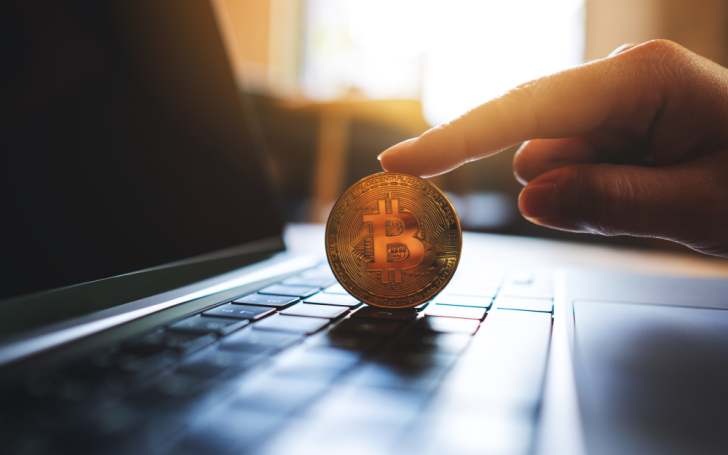With such, check out what should be in your checklist:
1. Crypto Exchanges
Although crypto exchanges are popular, this doesn't mean these are already available worldwide. Thus, you must know which crypto exchanges cater to your country before buying Bitcoin. You should know that some exchanges are only accessible to people living in particular countries. Some accesses were even granted exclusions.
The key idea here is you should only trade in the market where you're living. Doing so will save you from the trouble of the language barrier in case you need to contact customer service to seek assistance for your issues.
In addition, different factors can also affect your decision. You might also have to consider the liquidity requirements, payment methods, limits, and fees. And when you’re ready, you need to have your ID for verification purposes. However, you can still buy Bitcoin without ID in some exchanges.
To give you an idea, below are some of the best cryptocurrency exchanges that you can find in the market today:
- Bittrex: It's an exchange based in the US, and ex-Microsoft security experts are managing it.
- Bitmex: This is the third biggest crypto exchange globally, although compared to other exchanges, it only caters to BTC. If you're only aiming for margin trades and quick selling, then this exchange is good for you.
- Binance: It's the second-biggest crypto exchange in the world that trades more than 130 cryptocurrencies. You might want to consider this exchange if you're going to take advantage of its low transaction fees, which are 0.1%.
- Coinbase: This is the biggest crypto exchange in the world. It can be accessed in the US, Canada, and some of the major European countries.
2. Assets
Like other financial environments, you should expect to see various assets in cryptocurrency, which generally formulate an extensive investment market. For someone new to investing, you can't expect to learn and understand the merit and ability of these assets at a glance. Therefore, you should take the time to investigate and thoroughly grasp the vital information before you decide to buy one.
To give you an example, Bitcoin is the first digital currency ever introduced in the market, and there's no doubt that it remains very popular. However, this doesn't seal the future as it's only the starting point of digitization. In fact, over 1,300 altcoins amount to almost 40% of the total market capitalization of cryptocurrency.
Understanding the assets or cryptos can help you realize the purpose and functionality of the project. With enough background, you can quickly determine projects that suit your portfolio. Furthermore, you can easily monitor the trend of the market and expand other than Bitcoin.
3. Strategy And Trading Style
Whether you want to focus on Bitcoin or other assets, you need to have a strategy. And there are two strategies you can use if you're going to succeed in trading Bitcoin:
HODL Bitcoin Strategy
This strategy corresponds to the purchasing of bitcoin and holding it. Injecting some sense of humor, you can easily remember this strategy by associating it to the word ‘HOLD.’ Some would even divert the meaning of this strategy to ‘hold on for dear life.’ However, there should be no reason for you to be hesitant with this strategy.
The concept here is to purchase Bitcoin and hold it if you're confident about its long-term value. Again, this falls to understanding the value of the asset. If your assessment suggests that you must sell your assets to limit financial losses or earn a profit, then you must do so. But if you believe its price can go higher than the price you've bought it, then HODL. So, when the market is bullish, you can then sell it at a much higher price.
Bitcoin Hedging Strategy
This strategy helps temper the risks. Do so by changing the position of your current opened possession. However, you should only apply this strategy if you think that the market flow is heading against your favor. For instance, if you own Bitcoins and are worried about the short-term price depreciation, your best option is to get a short bitcoin position through a contract for differences (CFDs).
4. Safe Storage
You must also have storage for your earnings from Bitcoin trading. If you're looking for the safest way to store your digital assets, one way is to have a cryptocurrency wallet. Just like a wallet, you can keep your crypto in it outside the cryptocurrency exchange. That way, you can prevent someone from accessing it since market exchanges are more prone to hacking. By doing this, you can avoid losing a significant amount of your funds or cryptos.
Exchanges provide their users with storage for funds. However, their main goal is not to offer you security. You should be more cautious if you own long-term cryptocurrency funds. Always transfer them to a crypto wallet. However, not all wallets provide the same features. Some wallets only cater to Bitcoins. Others accept different kinds of altcoins in their storage system. Some wallets even allow you to exchange your Bitcoin for another crypto, similar to a market exchange.
Your options include cold and hot wallets. The former is the hardware or offline wallet since you don't connect it to the internet. Meanwhile, the hot wallet is the one you connect to the internet. Depending on your risk tolerance, both have risks you need to consider.
Conclusion
Knowing what should be in your checklist will help you gain an advantage. Instead of trying things yourself, you can use this guide to ensure you're on the right path. Don't wait for you to learn from your mistakes because you might have incurred such losses by then. And as a beginner in Bitcoin, you should be more cautious.
 Editorial staff
Editorial staff

 Editorial staff
Editorial staff


